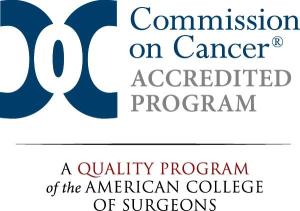Pancreatic Cancer

Pancreatic cancer is a complex condition that requires expert care. That’s why we offer comprehensive, compassionate care combined with advanced treatment options to ensure you’re in the best possible hands. In fact, as an accredited Comprehensive Community Cancer Program, we offer nearly all the same options and technology you’d find at an academic medical center, just close to home.
Our highly-skilled and compassionate team of cancer specialists will work together—and with you—to create a personalized care plan that’s tailored to your unique diagnosis, needs and treatment goals. And we’ll put you at the center of your care, so you’re in the driver’s seat.
What is Pancreatic Cancer?
The pancreas sits behind the stomach and produces digestive enzymes to break down food. It also regulates your body’s blood sugar.
Pancreatic cancer develops when cells in the pancreas grow out of control. And most start in the exocrine cells, which are the cells that produce digestive enzymes. However, a smaller number of pancreatic cancers start in the endocrine cells, which make hormones like insulin and glucagon that help control blood sugar.
Pancreatic Cancer Symptoms
Early pancreatic cancers typically don’t show any signs or symptoms. And by the time they do, the cancer has usually grown or spread to other parts of the body.
Common symptoms of pancreatic cancer include:
- Abdominal or back pain
- Blood clots
- Enlarged gallbladder or liver
- Lack of appetite
- Nausea and vomiting
- Unintentional weight loss
- Yellowing of the eyes and skin (jaundice)
Pancreatic Cancer Risk Factors
A risk factor is something that increases your risk for developing a certain type of cancer. Some, like those related to genetics, you can’t change. But others, like risk factors related to lifestyle, you can.
Common risk factors for pancreatic cancer include:
- Age, with risk increasing as you get older
- Being overweight or obese
- Chronic pancreatitis, or long-term inflammation of the pancreas
- Diabetes
- Exposure to certain harmful chemicals
- Family history
- Gender, with men more likely to develop the disease than women
- Inherited genetic syndromes, such as Lynch or Peutz-Jeghers syndrome
- Tobacco use, with cancer risk doubling in people who smoke
Pancreatic Cancer Types
Because most pancreatic cancers start in the exocrine cells of the organ, the most common types are exocrine cancers. Pancreatic adenocarcinomas make up the majority of exocrine cancers.
Less common types of exocrine cancers include:
- Adenosquamous carcinoma
- Signet ring cell carcinoma
- Squamous cell carcinoma
- Undifferentiated carcinoma
- Undifferentiated carcinoma with giant cells
Diagnosing Pancreatic Cancer
Pancreatic cancer is hard to diagnose early because the disease doesn’t usually show symptoms until it’s advanced.
In addition to a medical history and physical exam, some of the diagnostic tools we may use for pancreatic cancer include:
- Biopsy: If we suspect cancer, we’ll likely recommend getting a tissue sample to confirm the presence of disease.
- Blood tests: Blood tests can be used to determine liver function and check for tumor markers.
- Cholangiopancreatography: We may use this test to look at the pancreatic and bile ducts to see if they’re blocked, narrowed or dilated.
- Imaging tests: CT scans are often used to diagnose pancreatic cancer because they can show the pancreas clearly. We also may use ultrasound.
Treating Pancreatic Cancer
Your multidisciplinary cancer care team will develop a treatment plan personalized to you and your condition. Your team may include medical, surgical and radiation oncologists, gastroenterologists, and supportive care clinicians, such as dietitians, counselors and nurse practitioners.
In general, treatment for pancreatic cancer may include:
- Ablation or embolization: Although we don’t use it often, we may recommend ablation to destroy tumors without removing them. We may use this when pancreatic cancer has spread to other organs, especially the liver.
- Chemotherapy: We'll often recommend chemotherapy as a part of pancreatic cancer treatment. It’s useful before and after surgery—often with radiation—to shrink the tumor as much as possible.
- Immunotherapy: We also may use immunotherapy to treat some people who have tested positive for specific gene changes.
- Radiation therapy: We may recommend radiation—either alone or with chemotherapy—to treat pancreatic cancer. Sometimes, we’ll use it after surgery to try to prevent the cancer from coming back.
- Surgery: We may recommend surgery to either remove the cancer or to treat symptoms caused by the disease.
- Targeted therapy: We may use inhibitor drugs to target proteins or gene changes in cancer cells.


























